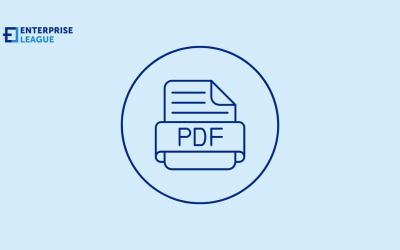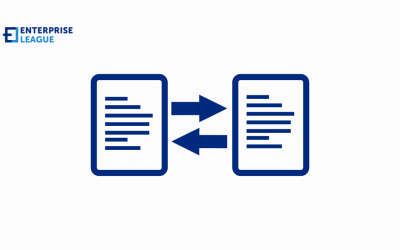Managing budget: 5 key points to manage while expanding your business
April 12, 2023

This article will discuss some key financial management strategies for your finances while expanding your business.
5 key aspects of financial management strategies
Importance of creating a budget
The CFO bears a significant responsibility in financial management to ensure that the budget plan aligns with the organization’s goals and objectives. Proper utilization of budget plans for recording expenditures is essential to keep control over expenses. Internal control and risk management are other key elements to consider while preparing the budget.
Personnel expenditures should also be controlled to achieve budget effectiveness and efficiency. Overall, a solid budget helps organizations to achieve financial stability and manage debts effectively while expanding.
Identifying necessary financial data for analysis
Identifying necessary financial data is crucial for any business to effectively manage its budget and debt while expanding. It includes understanding cash flow, assets, liabilities, and shareholder value. Utilizing the balance sheet and financial analysis software like Microsoft Power BI can aid this process.
Personnel expenditure control is a crucial aspect of budget management as it can significantly impact the overall effectiveness of a budget plan. By identifying and analyzing necessary financial data, businesses can make informed decisions to achieve their expansion goals.
Understanding the direct method of cash calculation
Understanding the direct method of cash calculation is crucial for managing cash flow effectively. In contrast to the indirect method, which adds non-cash expenses and revenue to net income, the direct method records all cash inflows and outflows.
It is worth noting that the direct method may not be suitable for all businesses and requires meticulous record-keeping. By understanding this method of cash calculation, business owners can make more informed financial decisions and maximize their cash flow.
Utilizing budget plans for recording expenditures
Utilizing budget plans for recording expenditures is essential for achieving financial stability. It involves identifying necessary financial data for analysis and understanding the direct method of cash calculation. Financial management relies heavily on the CFO who plays a central role in ensuring an appropriate balance between expenses, investments, and current expenditures.
One important element of budget planning is recording expenditures, which allows for effective control of personnel expenses for budget effectiveness and efficiency. It also enables the introduction of KPIs for activities under the procurement year budget, shipment, and beneficiary management. By recording expenditures and utilizing budget plans, individuals and organizations can better manage their financial resources and achieve long-term financial stability.
Controlling personnel expenditures for budget effectiveness and efficiency
Controlling personnel expenditures is essential for ensuring the effectiveness and efficiency of a budget plan. Maintaining financial stability requires managing and monitoring the flow of funds when a solid budget is in place.
It requires strict supervision over all personnel-related expenses, including salaries, benefits, training programs, and collection costs. By reviewing and analyzing past expenditures, one can identify areas that can be streamlined or reduced to maximize resources. Internal controls and risk management are also critical components in ensuring personnel expenditures are aligned with the budget plan.
By consistently monitoring personnel expenses and making necessary adjustments, a company can maintain financial stability and further its expansion goals.
Conclusion
Managing a company’s finances and ensuring growth and expansion falls within the purview of the Chief Financial Officer (CFO), who plays a crucial role. Managing financial controls involves looking at how actual revenues and expenses stack up against projections and goals.
That’s where the CFO comes in, as they are responsible for planning finances, capital raising, investments, risk management, financial monitoring, and estimated capital requirements. By eliminating repetitive, time-consuming tasks, a financial management system allows the chief financial officer to focus on strategic planning and the advisory role.
They also utilize budget plans for recording expenditures and play a crucial role in key elements of internal control and risk management. Ultimately, the CFO plays a crucial part in ensuring the company’s financial stability and success, making them essential members of any organization.
More must-read stories from Enterprise League:
- The relevance of print marketing and how to make it work for your business.
- Engaging online networking events that you should not miss.
- Why hiring millennials might be the best decision you can ever make.
- Find out how to get more customers for your business in a unquie way.
Related Articles
PDFs and the debate between tradition and innovation
Curious about the future of PDF? Learn about its integration with new technologies and explore some practical PDF tips to leverage all the power of this format!
The 10 Ds of entrepreneurship: Why are they important?
Are you familiar with the 10 Ds of entrepreneurship? Let’s see if you possess some or all of them that will launch you for success.
Optimizing performance and reliability in managed file transfer systems
Optimizing the performance and reliability of MFT systems is a continuous process that requires attention to infrastructure, software and strategic processes.
PDFs and the debate between tradition and innovation
Curious about the future of PDF? Learn about its integration with new technologies and explore some practical PDF tips to leverage all the power of this format!
The 10 Ds of entrepreneurship: Why are they important?
Are you familiar with the 10 Ds of entrepreneurship? Let’s see if you possess some or all of them that will launch you for success.





